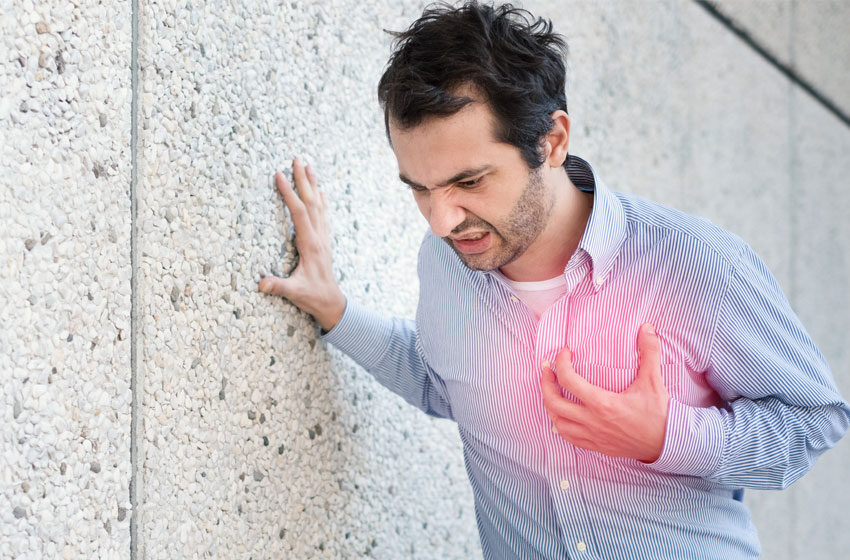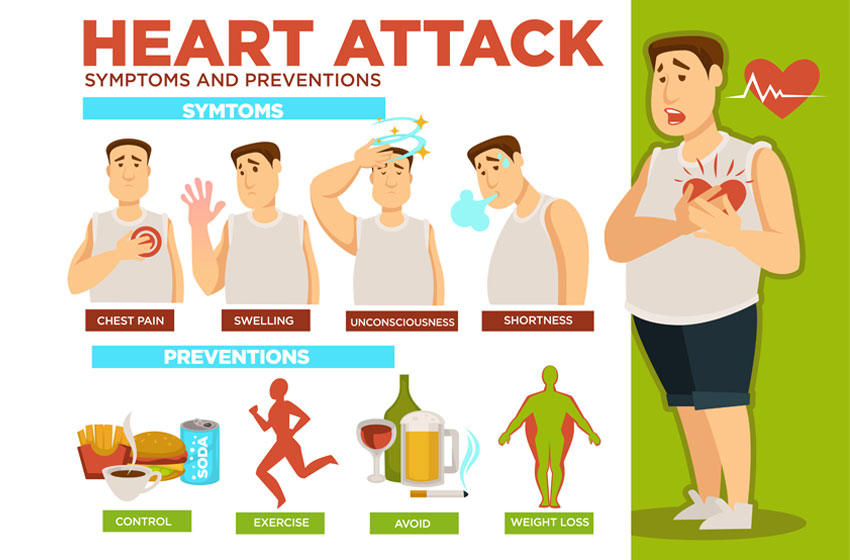Heart attacks can strike at any age and anytime

Cardiovascular disease is one of the significant causes of death and disability across the world; according to World Health Organisation (WHO), an estimated 17.9 million people lose their lives due to heart-related diseases. Cardiologist Clara Chow points out that the public perception of the disease is that it may happen suddenly and quickly, leading to someone’s instant death. However, she clarified that it might gradually affect a person and consume him/her without them even realising it.
Unfortunately, not everyone survives to tell the tale, as they are too weak to recover from the disease. On the other hand, there are many cases wherein the surviving patient describes the devastating symptoms and the potential circumstances of the heart attack or stroke.
For example, Wayne Heming was doing a bit of body surfing on the Gold Coast, one moment, he was feeling fit and enjoying the splashes of water, but soon he felt uneasy. Furthermore, he was clever enough to get out of the water; after he struggled to come up to the beach, he went back to the unit and started experiencing pain in the arms and broke out in chills.
His friend took him to the Southport Hospital and diagnosed him on the table, wherein the doctors found that the blockage was not severe. Fortunately, he recovered after a heart attack with a new nickname, “ticker”; he was 34, which people usually don’t associate with heart disease.
When should you get your heart?
When Mr. Fleming had a heart attack, he did not realise what was happening to him but later, he admitted that he led an unhealthy lifestyle, wherein he drank and smoked incessantly. Moreover, he said he was shocked and did not expect a heart attack because there were very few physical symptoms apart from being overweight.
Nonetheless, some well-known risk factors increase heart attack risks such as a sedentary lifestyle, smoking tobacco, high blood pressure, abnormal cholesterol, diabetes, excess weight, or obesity.
Mr. Heming had a heart attack in 1984; however, nowadays, doctors recommend people aged 45 and above or 35 for First Nations people to consult health professionals to check their hearts.
Clara Chow, president of the Cardiac Society of Australia and New Zealand, said people with a family history of the coronary disease should also get a checkup five years before that relative has an episode. Besides, she emphasised that there is no magic number that increases the risk of a heart attack because it can happen as you get older. However, in Australia, the age of 52 has increasingly become associated with the disease.
Deaths of renowned personalities
On March 4, the 52-year-old sportsperson Shane Warne passed away due to a heart attack while on holiday on the Thai island of Koh Samui. According to the Thai police, Warne had consulted the doctor about his heart as he experienced chest pains before his untimely death.

Similarly, six days later, the 52-year-old Victorian Labor Senator Kimberley Kitching died of a heart attack while driving to a meeting. Also, he was reportedly being treated for heart health issues before his death.
Chief executive of the Heart Foundation, Gary Jennings, a series of untimely deaths has caused concern and raised the community’s heart health awareness. Also, he pointed out that G.P.s had noted a rise in people wanting to check and visit the Heart Foundation website following Shane Warne’s death.
But Warne is not the only high-profile cricketer to have suffered a heart attack in the past two months. Less than 24 hours before Shane Warne’s death, fellow great Rod Marsh died in hospital aged 74, a week after a “major” heart attack.
On April 19, former Australia ODI wicketkeeper Ryan Campbell suffered a heart attack in England while playing with his kids. The 50-year-old spent almost a week sedated in intensive care but is expected to make a full recovery. Although a series of such serious medical episodes may look out of the ordinary, it is not so, as this occurs every four minutes in Australia.
How to know if you are having a stroke?
Like a heart attack, stroke occurs when there is a blockage in an artery; but instead of stopping the blood flow to one’s heart, it prevents the blood flow to the brain. Moreover, heart attacks have a series of obvious symptoms like chest pain; however, the signs of stroke are less noticeable.
One of the best ways to determine if someone has a stroke is by checking the signs for F.A.S.T.
- Face – is it drooping?
- Arms – can they lift them?
- Speech – is it slurred?
- Time – call triple-0
Doctors advise that apart from typical symptoms, there might be other signs that the person might not know. For example, they might have pain that’s not in the centre of the chest; they might have pain in the back and the upper part of the tummy. On the other hand, some patients get cold and clammy and get an arrhythmia, wherein the heart starts beating irregularly.
One of the doctors emphasised that they would rather have people who turn out to have a heart problem and get sent home from the emergency department than miss one who delays their treatment because they waited to go to the G.P. or waited to drive to the hospital.

Signs of heart attack
- Pain or pressure in the chest
- Discomfort in arms, neck, jaw, or back
- Nausea
- Cold sweat
- Dizziness
- Shortness of breath
Cardiovascular diseases do not differentiate between genders.
Professor Chow pointed out that women usually think that most patients with heart diseases are men; they get breast screenings, pap smears, etc. Hence, they feel they do not require getting their hearts checked out. However, it is noteworthy to mention that although cardiovascular disease kills about 40 percent more men than women, the latter start their treatment much later than men.
Women delay their treatment of heart-related problems because they believe that heart attacks affect men more; hence they prioritise other daily life responsibilities.
A serious concern
45 is the recommended age when people should consider going to the doctor to check their heart health. But Professor Jennings warns millions of Australians to have a checkup if anyone has suffered a covid-19 infection.
Significant studies conducted in the United States and the United Kingdom have indicated that if a person has had Covid-19, there is a greater risk of heart disease. For instance, the US-led study showed that getting infected by the coronavirus increases the risk of cardiovascular diseases irrespective of age, race, sex, and pre-existing health conditions.





